January 29 (Wednesday)
Plenary lecture I (Buzsáki lecture)
Team Science, Big Science and Open Science In the Service of Neuroscience
Christof Koch (Allen Institute, USA)
Symposium I
NOVEL INSIGHTS INTO MECHANISMS OF THE EPILEPSIES
Chairs: Vincenzo CRUNELLI (Cardiff University, UK)
István ULBERT (Péter Pázmány Catholic University, Hungary)
Pannexin 1 channels control seizure generation in human epileptic tissue
Elena Dossi
College de France, France
Paroxysmal depolarization shift in humans
Daniel Fabó
National Institute of Clinical Neurosciences, Hungary
Physiological and pathological synchronies in the human neocortex, in vitro
Lucia Wittner
Péter Pázmány Catholic University, Hungary
Interictal epileptiform discharges shape large-scale intercortical communication
Jennifer GELINAS
Columbia University Medical Center, USA
Corticothalamic and thalamocortical components of absence seizure ictogenesis
Francois DAVID
Integrative Neuroscience and Cognition Center, University Paris-Descartes, France
Plenary lecture II
Diversity and plasticity in the assembly of cortical circuits
Oscar Marín King’s College, UK
Symposium II
Learning and goal-directed navigation
Chairs: Panayiota Poirazi, Balázs Hangya
Medial septal circuit at the intersection of movement, learning and memory
Balázs Hangya
Institute of Experimental Medicine, Hungary
Independent effects of learning and attentional switching on neural responses in mouse primary visual cortex
Adil Khan
King's College, UK
Modelling interneuronal contributions to spatial navigation in health and disease
Panayiota Poirazi
Foundation of Research and Technology-Hellas, Grece
Synaptic/cellular and microcircuit mechanisms of adaptive context encoding in the hippocampus
Attila Losonczy
Columbia University, USA
Dendritic activity in CA3 place cell coding in familiar and novel environments
Jayeeta Basu
New York University School of Medicine, USA
January 30 (Thursday)
Plenary lecture III
Cortical Circuits of Vision: The Role of Context
Massimo Scanziani
UCSF, USA
Symposium III
Neurocybernetics – coupling brains to machines or machines to brains
Chair: Dion Khodagholy
Columbia University, USA
Large-scale organic neural interface devices
Dion Khodagholy
Columbia University, USA
Spatially and temporally targeted neuromodulation in health and disease
Antal Berényi
University of Szeged, Hungary
Contactless neuromodulation using transcranial radio frequency stimulation
Mihály Vöröslakos
New York University, USA
3D micro/nanoneedle and 2D flexible film for neural interfaces
Takeshi Kawano
Toyohashi University of Technology, Japan
Immune-synaptopathies: how the immune system affects synaptic function
Davide Pozzi
Humanitas University, Italy
Symposium IV
NAP-Symposium: Network analysis of brain functions
Chair: Ferenc Mátyás
Putative roles for local axon collaterals of projection neurons in spinal dorsal horn networks
Péter Szücs
University of Debrecen, Hungary
Dual thalamoamygdalar routes control emotional behavior
Ferenc Mátyás
Research Center for Natural Sciences, Hungay
Selectivity of dendritic inhibition in the medial entorhinal cortex
Csaba Varga
University of Pécs, Hungary
Corticothalamic feedback modulates network state
Péter Barthó
Research Center for Natural Sciences, Hungary
Ictal heterogeneity in the awake cortex
Magor L. Lőrincz
University of Szeged, Hungary
Cardiff University, UK
